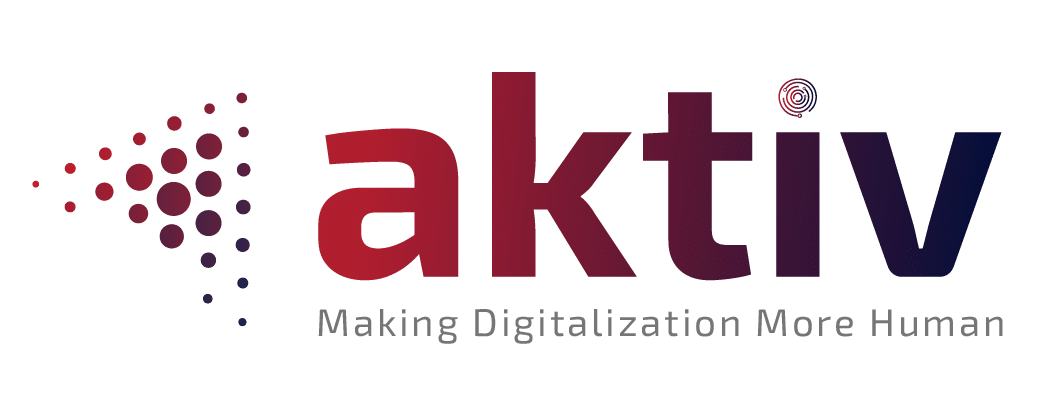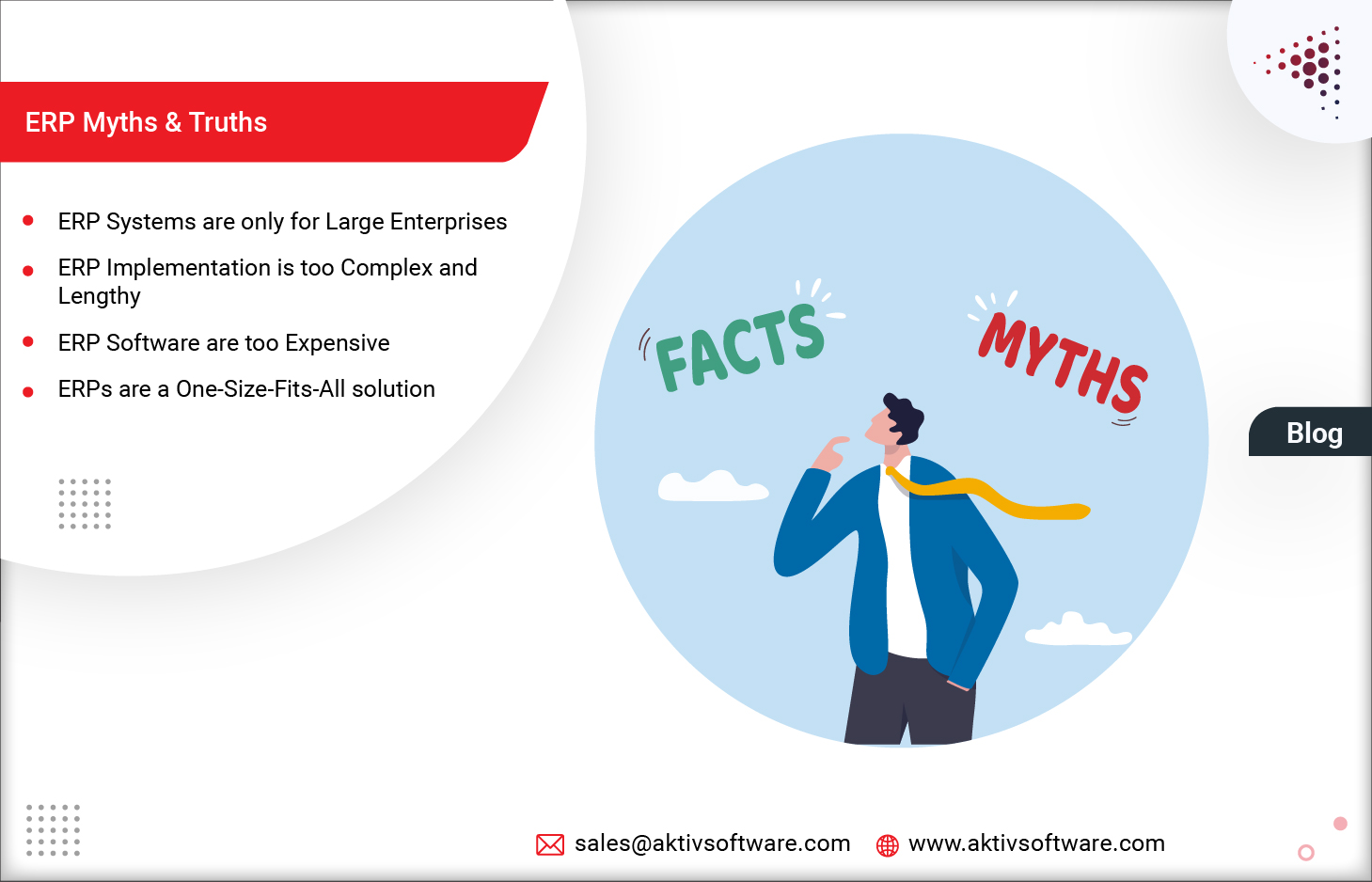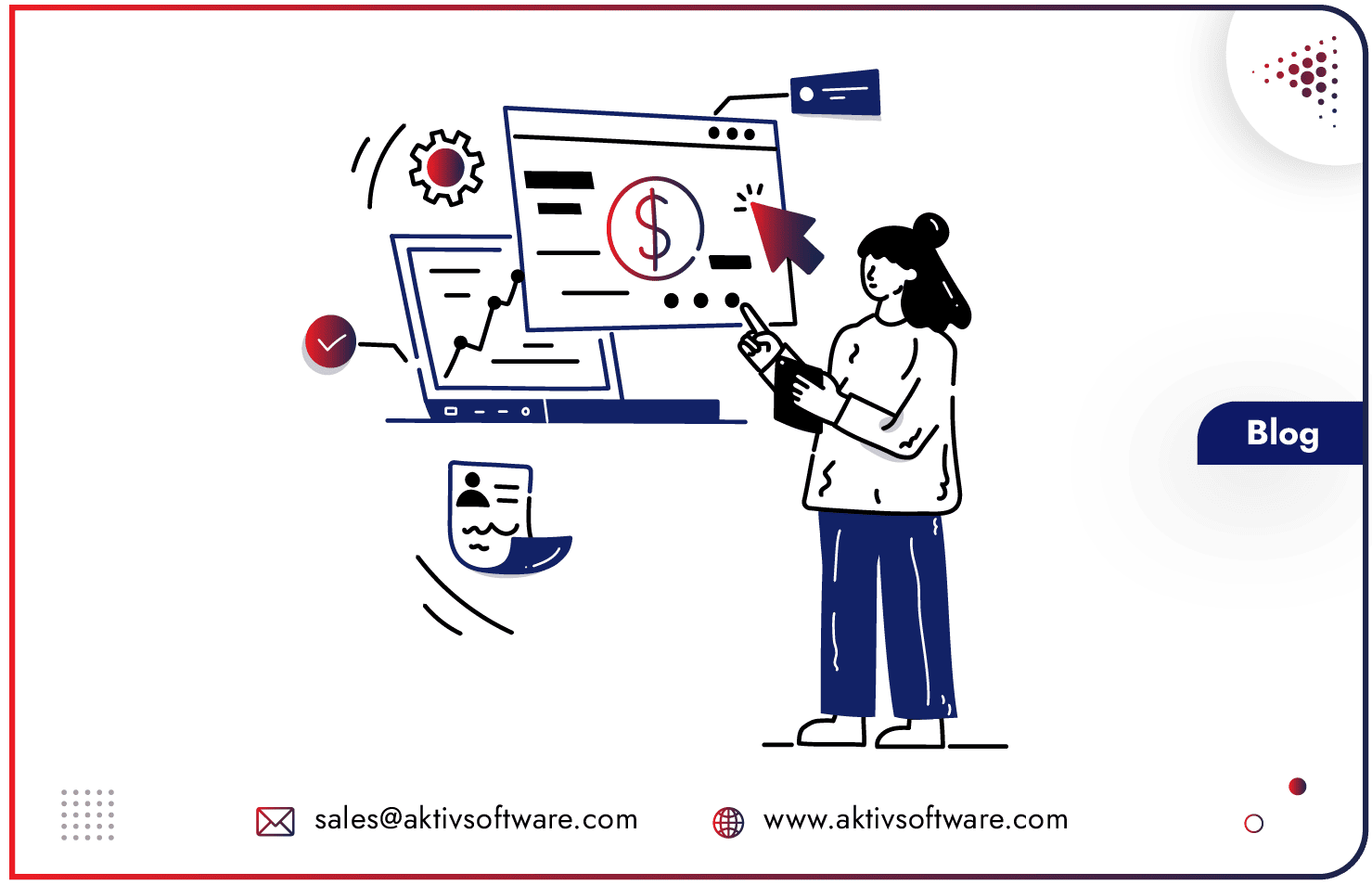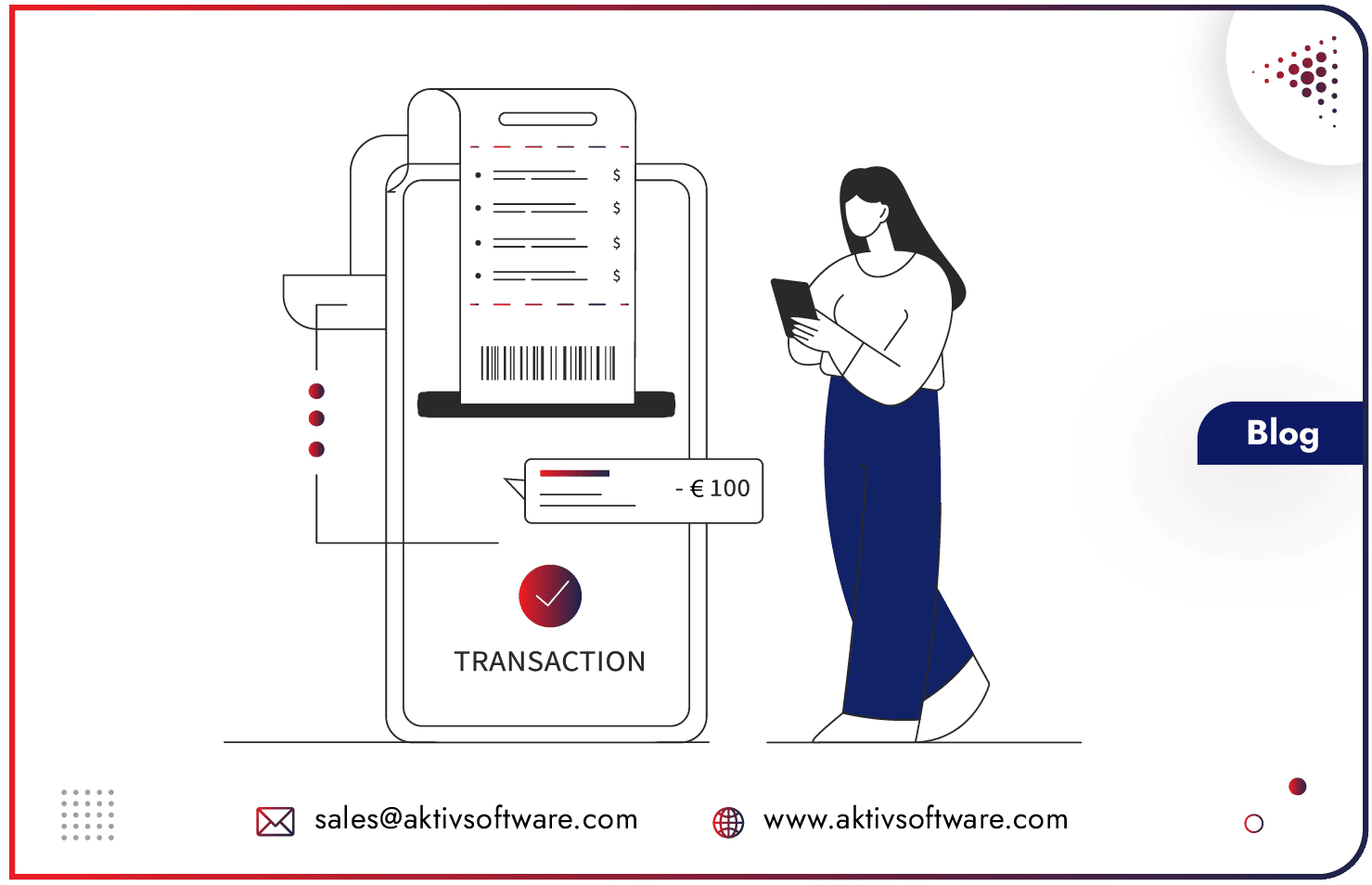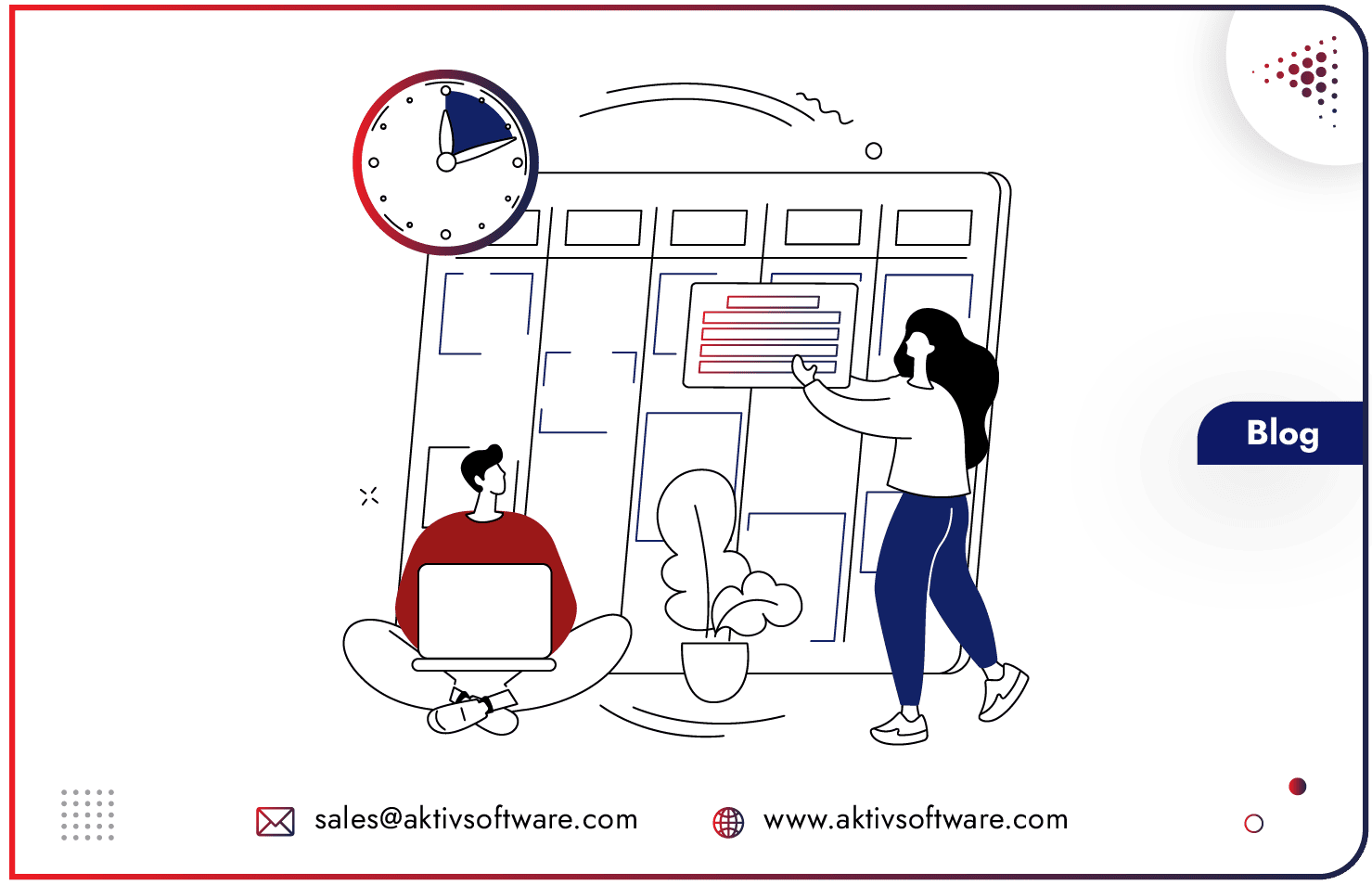Myths can keep you far from realizing your business’ true potential. In today’s rapidly evolving business landscape, staying competitive requires efficient and streamlined operations; this is where Enterprise Resource Planning (ERP) systems come into play.
Despite their proven track record of enhancing productivity, reducing costs, and improving decision-making, several misconceptions about ERP systems persist.
Let’s expose these ERP Myths and shed light on the benefits of the right ERP system for your business.
Destroying ERP Myths for you to ensure Stress-free Implementation
Myth 1: ERP Systems are Only for Large Enterprises
Many believe that ERP systems are designed for large corporations with complex operations. In reality, ERP solutions are available in various sizes and can be tailored to fit the unique needs of businesses of all sizes. Small and medium-sized enterprises (SMEs) can benefit significantly from ERP systems.
Cloud-based and modular ERP solutions like Odoo have made it more accessible and cost-effective for SMEs to implement and maintain ERP systems that suit their specific requirements.
Implementing an ERP system tailored to your business size can streamline operations, enhance collaboration, and provide data-driven insights, leading to improved efficiency and growth.
Myth 2: ERP Implementation is Too Complex and Lengthy
Another prevalent myth surrounding ERP systems is the belief that their implementation is cumbersome and time-consuming. While it’s true that ERP implementation requires meticulous planning and knowledge, modern ERP solutions have evolved to streamline this process.
Cloud-based ERP systems, for instance, offer quicker deployment and reduced infrastructure requirements, leading to shorter implementation times. Working with experienced ERP vendors can also help businesses navigate the implementation process smoothly.
A successful ERP implementation can increase operational efficiency, reduce manual tasks, and enhance visibility into various business processes.
Myth 3: ERP is IT-driven
While it’s true that IT plays a crucial role in implementing and maintaining ERPs, categorizing ERP systems as solely ‘IT-driven’ overlooks their broader significance and potential benefits for the entire organization.
ERPs are not just technological solutions but strategic tools that touch upon various aspects of a business, from finance and operations to sales and customer service. An ERP system is not merely an IT concern but a vital business asset that demands involvement and collaboration from all organization departments.
By acknowledging the potential of an ERP system and strategizing around it, businesses stand to extract optimal value from it.
Myth 4: ERP Systems are Too Expensive
Cost concerns are often a significant deterrent for businesses considering ERP implementation, especially if you are an SME. However, the perception of ERP systems being too expensive is a myth. While upfront costs and implementation expenses were once a concern, the ERP landscape has evolved.
Cloud-based deployment options have minimized upfront investments, shifting to subscription models that spread costs over time. Additionally, businesses can choose modular solutions, paying only for the required functionalities. While there are upfront costs, we believe that the long-term benefits of an ERP system, including improved productivity and cost savings, can far outweigh the initial investment.
The myth of overly expensive ERPs ignores the financial gains and competitive advantages they offer, making them a strategic investment for businesses aiming to thrive in a digital age.
Myth 5: ERPs are a One-Size-Fits-All solution
Some businesses hesitate to adopt ERP systems because they believe they must conform to a one-size-fits-all approach. However, modern ERP systems are highly customizable and can be tailored to match the needs and processes of individual businesses. Businesses can choose modules and features that align with their requirements, ensuring they get a solution that suits their unique operations.
Customizable ERP systems enable businesses to align the software with their existing processes, resulting in a more seamless transition, higher user adoption rates, and ultimately lower costs.
Dispelling these common myths is essential for businesses to appreciate ERP systems’ benefits fully. The right ERP system can be a game-changer for businesses of all sizes. As technology advances, ERP systems will likely become even more accessible, adaptable, and essential for achieving sustainable growth in today’s competitive business landscape.
Successful ERP Implementation is characterized by thorough senior management involvement, an expert implementation partner, clear guidelines for performance measurement, and detailed plans for training users.
Contact an ERP Implementation Partner like us to help you embark on this journey.

